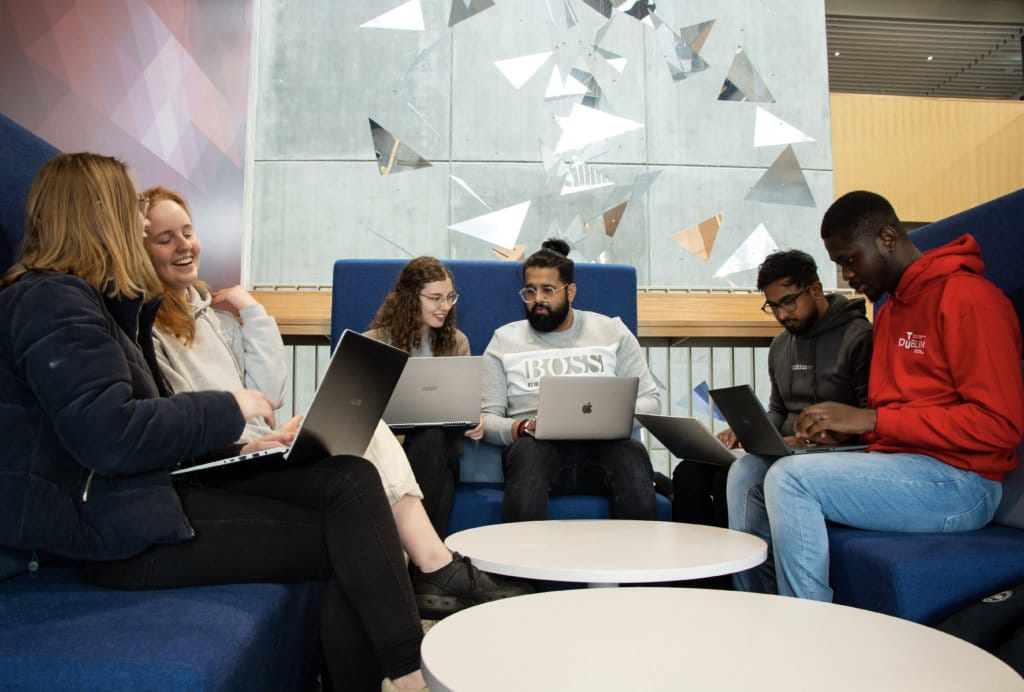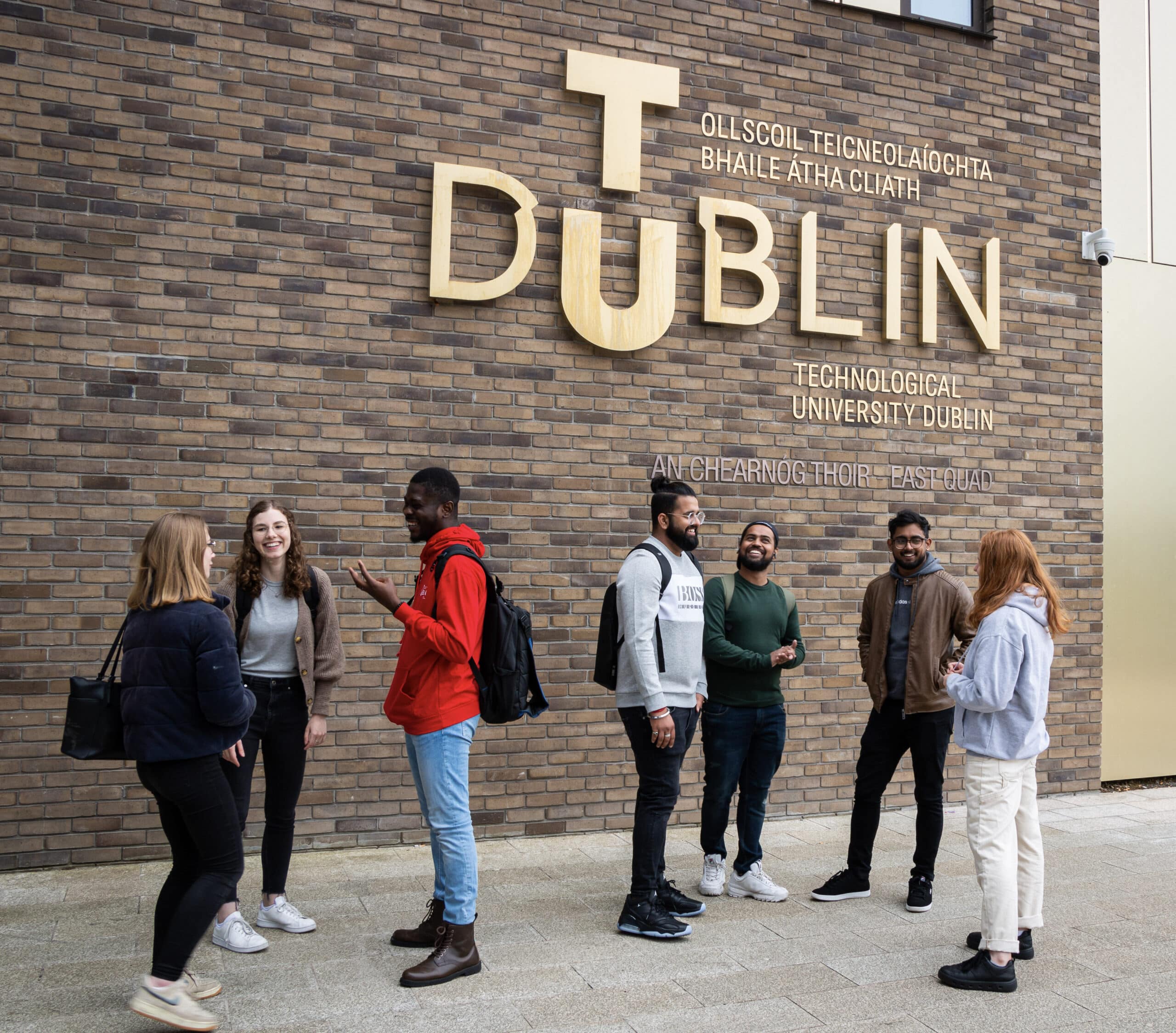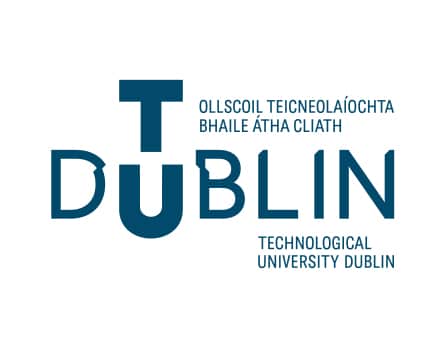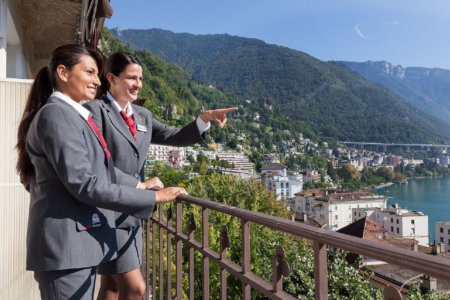Conversion courses are a brilliant platform for students to switch career paths or explore the possibilities for a new future.
Jane Ryan falls in the first category. As a student considering switching from the arts field to tourism, finding the right master’s programme would make a world of difference – and that led Jane to Technological University Dublin (TU Dublin), where it all fell into place:
“TU Dublin offered the best course available for what I needed, and the modules were specific to the areas I wanted to cover. I found the standard of teaching very high and the content of the subjects to be challenging and useful for the sector I want to be employed in,” shares the MSc Tourism Management student.
This institution is passionate about lifelong learning – and its accolades speak volumes. They support the largest cohort of students in business, media, culinary arts, and the creative and performing arts. It is the largest provider of part-time education and a leader in science, technology, engineering, and mathematics disciplines as well.
Those eager to venture into hospitality, tourism, and event management can consider three MSc programmes here: MSc Hospitality Management, MSc Tourism Management and MSc Event Management. They are offered by TU Dublin School of Tourism and Hospitality Management, Ireland’s first centre of excellence in hospitality, tourism, sports and leisure, and event management education.
Designed with flexibility in mind, the MSc programmes cater to those who are new in the field or are employed in the three sectors. Most importantly, students will learn, engage, and interact with leading academics and experts within the field. For instance, leading scholars and experts from the national and international hospitality sector teach students in the MSc Hospitality Management programme.

Recognition of prior learning allows students to gain an edge when applying for programmes at TU Dublin. Source: Technological University Dublin
Modules are all-encompassing. The MSc Hospitality Management, one of TU Dublin’s most
sought-after programmes, covers all aspects of the hospitality industry. Its business-based curriculum equips students with the management skills and analytic capabilities necessary to obtain careers in a wide range of organisational settings. Along the way, they boost their personal development, their employability, and their potential to contribute to society and the community.
Core modules ensure students understand finance and how it relates to the planning, control and decision-making activities of business; develop effective strategic marketing skills; hone key competencies that are required to manage the everchanging tourism, hospitality and event business environment; and gain exposure to the most current thinking in the industry. At the same time, lecturers help students sharpen their academic reading, writing and thinking as well.
For their thesis, students can conduct an independent piece of research on a chosen topic related to their sector. It’s a challenging endeavour, but one that pushes students to critically engage with relevant literature, develop focused research questions, and objectives, engage in primary research work and analyse their findings.
In the MSc Event Management programme, students learn the art of entrepreneurship, develop a mind for strategic marketing, understand the complexities involved in an event-planning process. Students also get to investigate the latest trends concerning hospitality, tourism and event management with the school.
Likewise, students in the MSc Tourism Management programme will cover similar modules – with the added benefit of exploring specialised electives. Picture uncovering the study of tourism markets or using data analysis to understand customer behaviour.
That’s not all. With a 1:20 staff-to-student ratio and small class sizes, graduates like Tadhg Branagan had a chance to build meaningful relationships. “The fact that the classes were quite small was an advantage as it allowed a greater rapport with the lecturers and allowed you to ask the questions that were relevant for your needs,” enthuses the MSc Event Management graduate.
“The group of students undertaking the course was a mix of experienced and inexperienced within events which worked out well as it allowed the experienced students to provide invaluable information to us about the different issues they may have experienced within their roles.”

Given the flexibility of TU Dublin conversion course, graduates leave with confidence and enthusiasm to make their impact in the world. Source: Technological University Dublin
As a graduate, employment opportunities abound. Take the MSc Tourism Management, for example. Career paths include holding management positions within the travel sector, working with cooperative marketing groups, or securing a role with tourism organisations.
Graduates can also choose to pursue a PhD or stay and work within the country if they qualify for a two-year work visa through Irish Immigration’s third-level graduate programme.
MSc Hospitality Management graduates are set to do well as their industry returns to its normal vibrancy post-pandemic. Extensive career opportunities are predicted, from excellent openings to accelerated promotion within a wide range of organisational roles. These open the doors to rewarding careers whether in consulting, tourism, events, marketing, revenue management, teaching, lecturing and beyond.
It’s clear that TU Dublin is a place that welcomes and empowers all aspirations. Little wonder why 2,854 international students call this place home. Add the fact that Ireland is the only English-speaking country within European Union, and students can greatly improve their fluency in the language. This skill will help graduates to communicate effectively in the broader business world.
Eager to chart a new future? Click here to learn how you can get started. These MSc programmes commence in January or September.
Follow Technological University Dublin on Facebook, Instagram, Twitter, YouTube and LinkedIn













